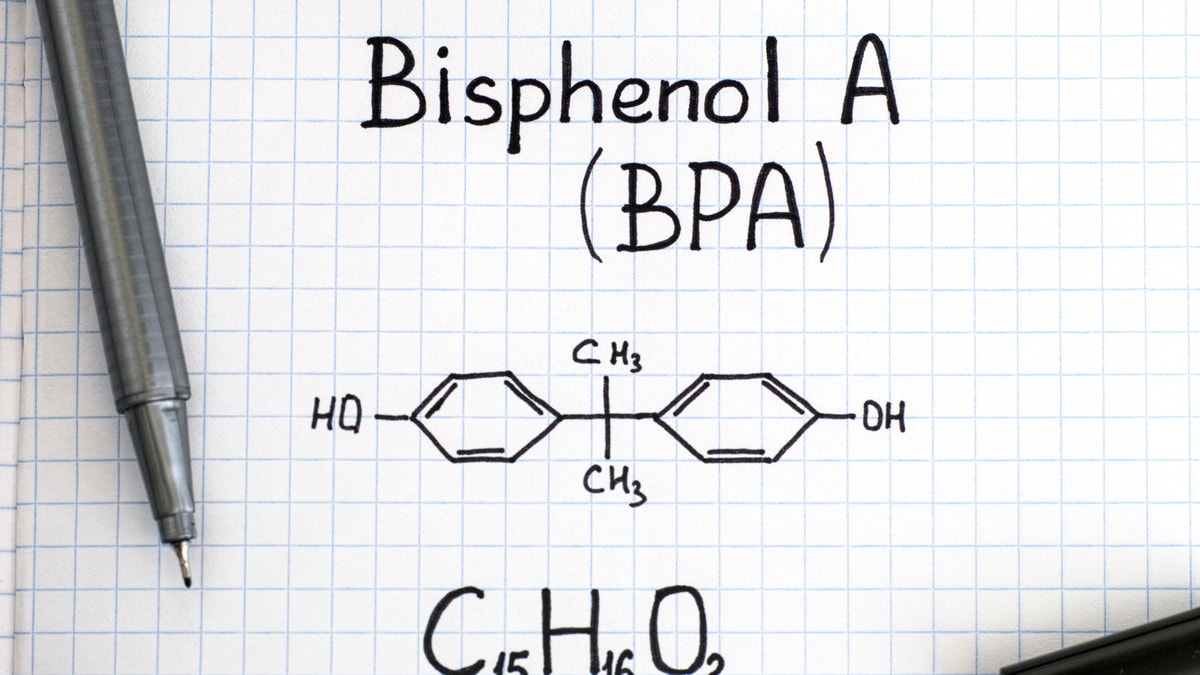Last Updated on October 18, 2024
Bisphenol A, known as BPA, is a chemical present in many hard plastics that we use on a daily basis, but what is BPA mean? The risk of BPA is that it can be found in urine at detectable levels and in higher doses can cause serious health issues.
Table of Contents
What Is BPA Mean?
BPA (Bisphenol A) is a chemical that can be found in baby bottles, water bottles, food containers, sealants, eyeglass lenses, household electronic items, medical devices, sports equipment, and DVDs, and CDs. Additionally, studies have shown it to be part of epoxy resins, which are used to coat the inside of cans.
However, this three-letter word is extremely dangerous for our health. In fact, higher doses of this chemical have been linked to a number of serious health issues. Let’s see why is BPA bad for your health and what can you do to lower your exposure to it.
Why is BPA Bad for Your Health?
This toxic chemical has been associated with many health issues, including immunity, reproductive, and neurological problems. Additionally, this chemical is known to increase the risk of childhood asthma, type 2 diabetes, Alzheimer’s, metabolic and cardiovascular disease.
The reason this chemical is bad for your health is because is a soluble chemical. This means that in cases when the chemical comes upon liquids or heat, the link this chemical and plastic have can be no longer existent. As a result, the toxic chemical enters your food or beverage.

Infertility and Fetal Development
Pregnant women should be very careful about their dietary choices if they want to keep their fetus healthy. However, they should also be conscious of the kind of plastic they use as BPA is known to have a negative effect on fetal development processes.
Likewise, many studies have shown that Bisphenol A has a negative impact on the male reproductive function and it might also be the culprit of birth defects.
Cancer
BPA has been found to interact with certain cell receptors by imitating hormones such as estrogen. Thus, it can promote the development of certain cancers, such as ovary, breast, and prostate cancer. Additionally, it can diminish the chemotherapy effectiveness in breast cancer patients.
Heart Disease and Diabetes
The main cause for both these conditions seems to be processed foods and high-fat diets. Nevertheless, it looks like the BPA used in product packaging adds to the likelihood of developing heart disease and diabetes. What’s more, this chemical has been linked with the risk of high blood pressure.
Brain Function
The exposure to this chemical has a negative impact on brain function as well. A study conducted by the Duke University Medical Center discovered that BPA disrupts the way the brain regulates genes and prevents the removal of chloride from the central nervous system. Thus, this chemical can trigger the development of many cognitive disorders, including dementia and Alzheimer ’s disease.
And what about the alternatives and BPA free plastic?
How to Reduce Your Exposure to BPA?
If you want to limit your exposure to this harmful chemical, you might want to consider:
- Picking cardboard and glass containers over cans;
- Use glass bottles for beverages;
- Avoid eating canned foods;
- Use BPA-free baby bottles;
- If you still decide to use plastic, find the one with the BPA-free label;
BPA has a detrimental effect on our health and can cause a number of health issues. So, by choosing not to use plastic, you don’t only put your health in focus but also reduce your plastic footprint.

Barbara is an environmental activist and sustainability advocate who loves living green and sustainable. She firmly believes in reducing her carbon footprint and has been making great strides towards achieving this goal. Barbara is a vegan and avid recycler and has been actively involved in community gardens and other green initiatives. She is passionate about spreading awareness about the importance of living in a sustainable and eco-friendly manner. Barbara is always looking for ways to make a difference in her community and beyond. She is a huge advocate for preserving nature and the planet for future generations.

